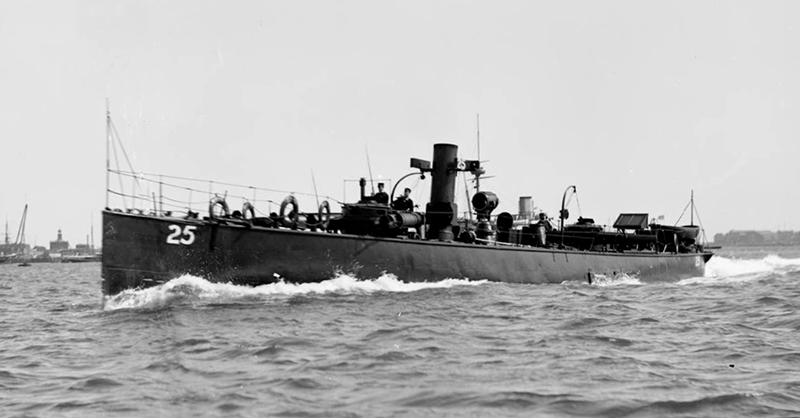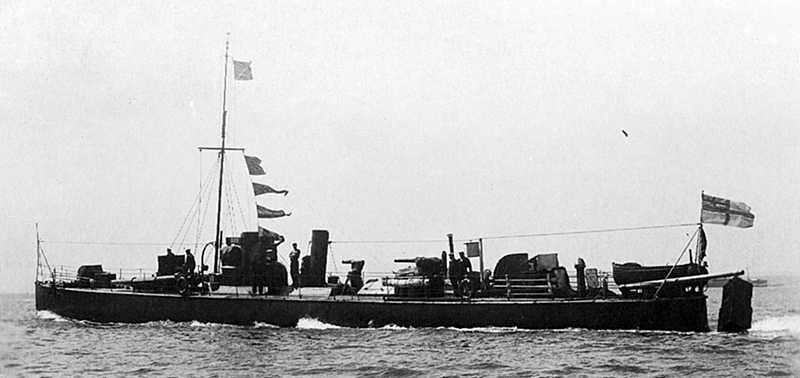
NAVYPEDIA
 Support the project with paypal
Support the project with paypal
Photo

TB25 as built
Ships
| Name | No | Yard No | Builder | Laid down | Launched | Comp | Fate |
|---|---|---|---|---|---|---|---|
| TB25 1906 - TB025 | 212 | Thornycroft, Chiswick | 1885 | 7.10.1885 | 1886 | Discarded 1919 |
Technical data
| Displacement normal, t | 70 |
|---|---|
| Displacement full, t | 93 |
| Length, m | 38.1 pp 38.9 oa |
| Breadth, m | 3.81 |
| Draught, m | 1.82 |
| No of shafts | 1 |
| Machinery | 1 2-cyl VCE, 1 locomotive boiler |
| Power, h. p. | 700 |
| Max speed, kts | 19.4 |
| Fuel, t | coal 20 |
| Endurance, nm(kts) | 1745(10) |
| Armament | 3 x 2 - 25/40 Nordenfelt Mk I, 1 - 356 TT (bow), 2 x 2 - 356 TT |
| Complement | 16 |
Graphics
Project history
These boats were ordered in numbers because of the 1885/6 war scare with Russia, and because of the realisation that both France and Russia were building up their torpedo boat arms to a much larger extent than Britain. The original intention was to use them as 'torpedo catchers', as escorts for the fleet against Russian TBs, and therefore they were to have an armament of 2 47mm and 2-twin-barrelled Nordenfeld MGs (later replaced by 5-barrelled 11.43mm guns) plus one fixed bow TT(356mm). However, they were also intended from the start to double as TBs, and they were all completed with the alternative armament of two pairs of deck TT instead of the 47mm guns. Ordered in February 1885 before the Russian war scare had started, TB25 was the prototype for the class. Unfortunately her 'bull nose' ram bow proved to be totally unseaworthy, and she was rapidly returned to dockyard hands to have the ram bow and the fixed TT removed, and thereafter proved a useful vessel, with only the deck tubes and a conventional straight bow. She steered well, having Thornycroft's own special design of stem with a slight hollow to it and curved rudders on either side of the propeller to give a 'tunnel effect'.
Modernizations
1886: - 1 - 356 TT
1901: was reboilered with water-tube boilers.
Naval service
TB25 was reboilered in 1901 with water-tube boilers, served as a patrol boat during the First World War, and was broken up soon afterwards.
 HOME
HOME FIGHTING SHIPS OF THE WORLD
FIGHTING SHIPS OF THE WORLD UNITED KINGDOM
UNITED KINGDOM TORPEDO SHIPS
TORPEDO SHIPS TB25 torpedo boat (1, 1886)
TB25 torpedo boat (1, 1886)



